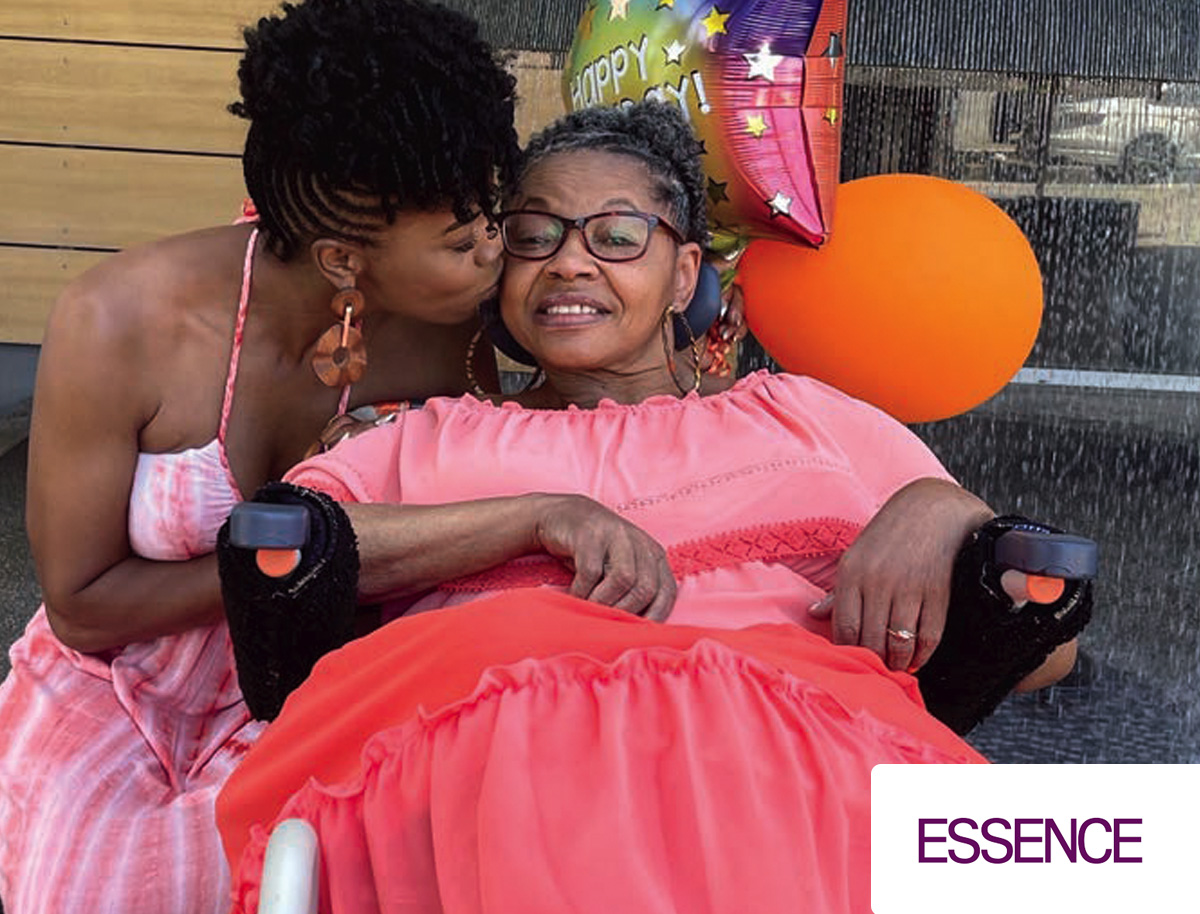P-Valley star Brandee Evans is living her dream. Not only is she the lead in a hit TV series, but she has the strong connection with her mom, Diana Harrington, that she’d desired for some time. Though they once had a strained relationship, over the past few years the two have become much closer—attending concerts, traveling together and even getting matching tattoos. Evans just wishes it hadn’t taken a multiple sclerosis diagnosis and a suspected Alzheimer’s battle to get there.
“It’s bittersweet,” she admits. “I always wanted what I have now, which is time with my mom to just have a girls’ day. But it’s also, At what price?” Evans, one of 39.8 million caregivers in the U.S., is among the 48 percent of them between the ages of 18 and 49 who are figuring out how to provide for the needs of a loved one in uncertain times.
In 2004, when family members and friends noticed Harrington’s memory declining and saw that she stumbled often, their concerns led to her being diagnosed with MS, which affects the central nervous system. She managed to remain independent until 2014, but a fall in her Memphis home resulted in a leg injury requiring hospitalization. When Harrington was sent to a nursing home upon discharge, her daughter was devastated.
“It was the one thing that I’d always promised her that I would never do,” Evans says. “My grandma used to work in nursing homes, and so we knew how they were run. I remember having a conversation with my mom when I was a little girl, and she was like, ‘If anything ever happens to me, please don’t put me in a nursing home.’”
For two years Harrington lived in the Memphis facility, receiving care that made her daughter increasingly unhappy. “I would visit and Mom would be dirty, and I felt horrible,” she says. “I was like, They’re not feeding her right. The room’s not clean. It was so depressing.”
At the time, Evans, a choreographer with a burgeoning acting career, was living in Los Angeles. In 2016, believing advancements in nursing care in California would benefit her mother’s health, she decided to move her to L.A. and become her full-time caregiver. She did her research beforehand to better understand what would be required to perform such tasks as feeding and bathing her mom. Evans shared her caregiving journey online and soon found support from strangers, who gave everything from about $14,000 in GoFundMe donations to a wheelchair and van to aid in Harrington’s care. Initially prideful, Evans eventually welcomed the assistance—for her mother’s sake and her own sanity. “Asking for help does not make you weak—that’s what I’ve learned,” she says. “What makes you weak is thinking you can do it all by yourself.”





